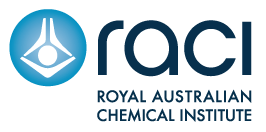In our experience, people making career changes often have difficulty describing their skills in an imaginative way. Chemists, who are highly technically trained, often overlook the importance of soft skills. These portable, or transferable, skills are learnt on the job and through life experience.
As well as being important for job transitions, transferable skills are seen as more critical to jobs of the future. They encompass a range of personal attributes and interpersonal abilities, and are relevant across a broad range of fields.
The skills developed through the study and practice of chemistry extend far beyond the boundaries of the laboratory, and can open doors to new and exciting career opportunities.
1. Analytical thinking and problem solving
Chemistry nurtures a strong foundation in analytical thinking and problem-solving skills. Chemists are trained to break down complex problems into manageable components, identify patterns, and apply logical reasoning to find solutions. This skill set is highly transferable to various industries, including finance, data analysis, engineering, and research and development. The ability to analyse data, think critically, and devise innovative solutions is invaluable, regardless of the field.
2. Attention to detail and precision
Chemistry demands meticulous attention to detail and precision in experimental procedures and data analysis. The significance of accuracy is ingrained in chemists, as even minor variations can significantly affect results. This keen eye for detail is beneficial in sectors such as quality control, manufacturing and project management. It ensures that tasks are executed with precision, minimising errors and optimising outcomes.
3. Communication and collaboration
Effective communication and collaboration skills are vital in chemistry, where teamwork and information sharing are essential for successful research and development. Chemists often work in multidisciplinary teams, collaborating with other researchers, and technical and business staff. Clear and concise communication is crucial when conveying experimental findings, proposing hypotheses, or presenting research outcomes. These communication and collaboration skills can transfer to industries such as project management, sales and consulting, where the ability to articulate ideas and work collaboratively with diverse teams is highly valued.
4. Adaptability and flexibility
Chemistry is a dynamic field that is constantly evolving with new discoveries and technological advancements. Chemists learn to adapt to changing circumstances, modify experimental approaches, and think creatively to overcome challenges. This adaptability translates well to industries that undergo rapid transformations, such as technology, health care and entrepreneurship. Chemists are well equipped to embrace change, identify emerging trends, and find innovative solutions to complex problems.
5. Time management and organisation
Chemistry experiments often require meticulous planning, scheduling and adherence to strict deadlines. Chemists develop strong time management and organisational skills to ensure experiments run smoothly and efficiently. These skills can be applied in industries where project management, resource allocation and meeting deadlines are crucial, such as event planning, logistics and operations management.
6. Ethical responsibility and safety awareness
Ethics and safety are paramount in the field of chemistry. Chemists are trained to prioritise safety protocols, handle hazardous materials responsibly, and adhere to ethical guidelines. These values are transferable to industries where safety, compliance and ethical practices are fundamental, such as occupational health and safety, environmental protection, pharmaceuticals and public service.
7. Cultural awareness
Chemistry is a global enterprise and often requires collaboration across different countries. The experience gained through working with people from different cultural backgrounds gives chemists insights into the value of different perspectives and different ways of thinking. Increasingly, this skill is highly valued across all sectors, particularly in companies operating globally or working with clients from multicultural backgrounds such as education or community services.
8. Innovation
Drawing on innovation and other transferable skills, chemistry professionals looking to make a cross-sector career transition are well suited to boundary-spanning roles. These roles are increasingly in demand for professionals who can foster collaborations, especially between professionals from different fields who have not collaborated before, link seemingly disparate ideas and bring different approaches to problem solving.
When job seeking, help employers ‘open the aperture’ and consider a broader set of skills from what they might normally seek. Emphasise your unique combination of skills, remembering that ‘hard skills get interviews, soft skills get jobs’.
In future columns we will profile chemists who have moved into new and unexpected fields, and how they are using their transferable skills differently to how they envisaged.


